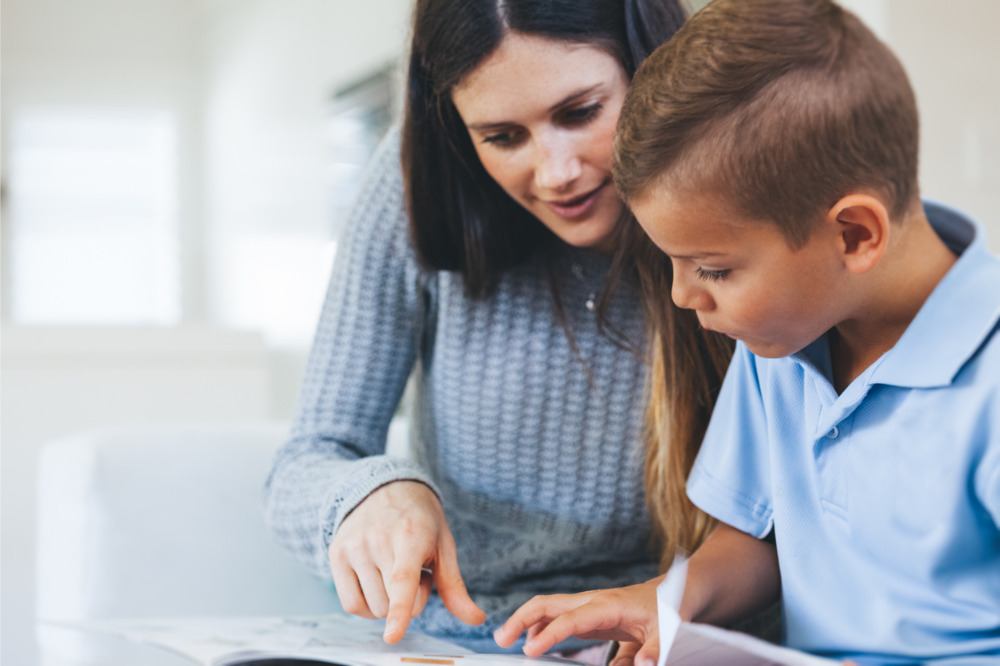
In October, the first major report by the Australian Education Research Organisation (AERO) revealed that the writing skills of Australia’s school students have declined over 7 years.
To address this, schools and governments have been investing in tutoring programs in an effort to help young people thrive in these important domains.
One such program seeing strong results is The Smith Family’s Catch-Up Learning program, which first ran in 2021 in response to the COVID-19 pandemic.
The Smith Family’s Catch-Up Learning program – aimed at closing the gap in educational achievement between students experiencing disadvantage and their more advantaged peers – first ran in 2021 in response to the COVID-19 pandemic.
The evaluation of the first pilot showed promising evidence of the program’s capacity to engage students from years 4-8 and support greater than expected gains in both literacy and numeracy. A larger second trial and evaluation of the program was undertaken in 2022, supported by funding from the Australian Government Department of Education.
More than 400 students from across Australia completed the second program in 2022, participating in one-on-one tutoring with qualified teachers, three times a week over 20 weeks.
The evaluation of the second trial found 67% of students made greater progress in numeracy than might typically be expected over a six-month period; 53% of the participants made greater than expected progress in literacy than might typically be expected over a six-month period; and 44% of students who completed the program made greater than expected progress in both literacy and numeracy.
“While online tutoring is a relatively new area of research, this evaluation shows it can play a role in supporting students who are struggling in numeracy and literacy to make strong progress. It also helps lay the foundations for longer-term educational success by increasing students’ confidence and love of learning,” The Smith Family’s Head of Research and Advocacy, Anne Hampshire, said.
“Tutors form positive relationships with their students and tailor learning to their interests and needs, making this type of learning particularly effective.”
The program was beneficial for all groups of students who participated, including Aboriginal and Torres Strait Islander students and those with a health or disability issue – particularly in numeracy.
Two in three Aboriginal and Torres Strait Islander students and non-Indigenous students made greater than expected progress in numeracy, as did 58% of students with a significant health or disability issue.
As with the first pilot, the second trial kept students engaged, with program completion high at 83%. Average program attendance for students who completed the program was also high at 86%. More than four in five of the students who completed the program attended at least to one-hour tutoring sessions a week for 20 weeks.
“We know how important parental engagement is to children’s educational outcomes. In CatchUp Learning we saw the power of parents/carers and tutors working together, sharing their respective knowledge to support the best outcomes for children,” Hampshire said.
“Parents shared information about their child with tutors, enabling tutors to draw on students’ strengths and interests during lessons. Parents were able to hear from tutors on how their child was progressing and gain tips, helping them to feel more confident about engaging with their child’s learning.”
Hampshire said this research is contributing to the Australian evidence base of what works to support students experiencing disadvantage to make progress in numeracy and literacy.
“It is particularly relevant given the ongoing and growing gap in outcomes for this group of young people.”
Below are several testimonials, shared by teachers whose schools participated in the program’s trial.
“I didn’t know what to expect or hope for from the program...what I did hope was that it would help Josie* have more confidence in herself...I believe that the program has done that.” [Parent/carer, Year 6 student]
“Amber seems to have more confidence, she’s more engaged at school...I’ve been getting feedback from the school saying that she’s doing a lot better in class and she’s actually doing the work and engaging more in the actual program at school too. She’s getting better grades. She’s actually thinking more about her future options as well.” [Parent/carer, Year 8 student]
“Jason flourished during this program...We spent a lot of time discussing strategies to help him succeed and how he can help himself in the future. His confidence and our rapport have grown and once where I only taught the top of his head, as he was unable to make eye contact, I have been rewarded with full face visuals for the final two weeks.” [Tutor, Year 7 student]
“I feel Sara has benefitted enormously as a result of her participation...She has demonstrated good progress in her learning especially in numeracy, and her confidence in her abilities has increased considerably since the start of tutoring. Sara is also beginning to develop skills in metacognition and self-management that I hope will inform her learning going forward. I am particularly impressed with the way she is beginning to apply her prior learning to new content and problems.” [Tutor, Year 4 student]
*All names have been changed


